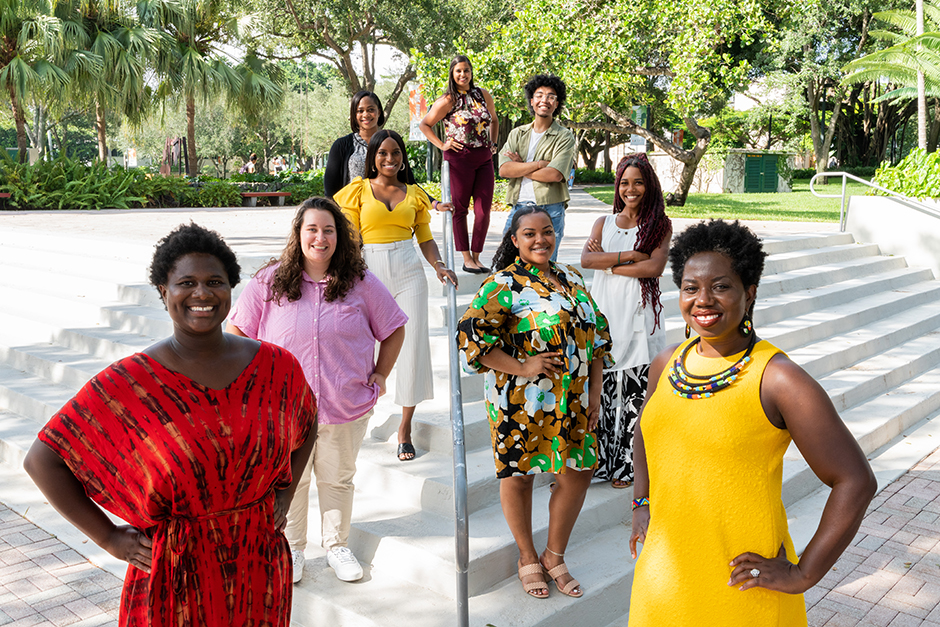Shortly before he was assassinated in 1968, Martin Luther King, Jr., said that he feared he was “integrating my people into a burning house.”
Sannisha Dale, an associate professor in the Department of Psychology, likens her work to a firetruck pulling up to that metaphorical burning house: “bringing up hoses, ameliorating the impact, and sounding the alarm” to address the structural oppression that forces vulnerable populations to the margins.
Through her own research and varied leadership roles, Dale grapples with the systemic issues of racism and oppression that King so passionately wrestled with—destructive “’isms,’” she says, that are still very much with us today.
Dale founded and directs the Strengthening Health with INnovation and Engagement (SHINE) program for the study of physical and mental health disparities, particularly among communities marginalized by "isms" targeting HIV status, race, gender identity, sexual orientation, and other factors.
As founding chair of the Diversity and Equity Committee of the Psychology Department, Dale has also championed conversations and initiatives to improve diversity, equity, and inclusion.
And, as director of the Mental Health Disparities Core and scientific director for Community Engagement of the UM Center for HIV and Research in Mental Health (CHARM), she strives to ensure that community voices inform CHARM’s priorities, research studies, and support programs.
“Running experiments, finding causes and solutions—these activities are typical of many types of research,” Dale says. “In health disparity work, however, the solutions are best led by community members and partners who are proximal to the experience.”
Dale spearheads several innovative outreach initiatives. Her team partners with area businesses and community health organizations to encourage utilization of HIV testing, Pre-exposure prophylaxis (PrEP), and the COVID vaccine in exchange for vouchers for essential goods. The NIH-funded Project MMAGIC (Monitoring Micro-Aggressions and Adversities to Generate Intervention for Change) gathers data from Black women living with HIV to highlight the role of social and structural issues affecting their lives and health status.
As co-director of the University’s NIMH-funded Culturally-focused HIV Advancements through the Next Generation for Equity (CHANGE) program, Dale trains and mentors doctoral students and postdoctoral scholars to address HIV and mental health disparities among Black, Latinx, and LGBTQ+ communities.
“This work is not 9-to-5 or checking things off a list,” Dale says. “Much of our work involves showing up with love and commitment to meet people where they are—to be of service while acknowledging the barriers they face, such as racism, homophobia, transphobia, and anti-immigrant policies.
Meeting these complex challenges, Dale notes, requires both institutional and philanthropic resources. “Additional support will allow us to continue working directly with community members, businesses, and partners to implement prevention and treatment strategies that are working—and to stay connected with marginalized populations in a sustainable way.”

